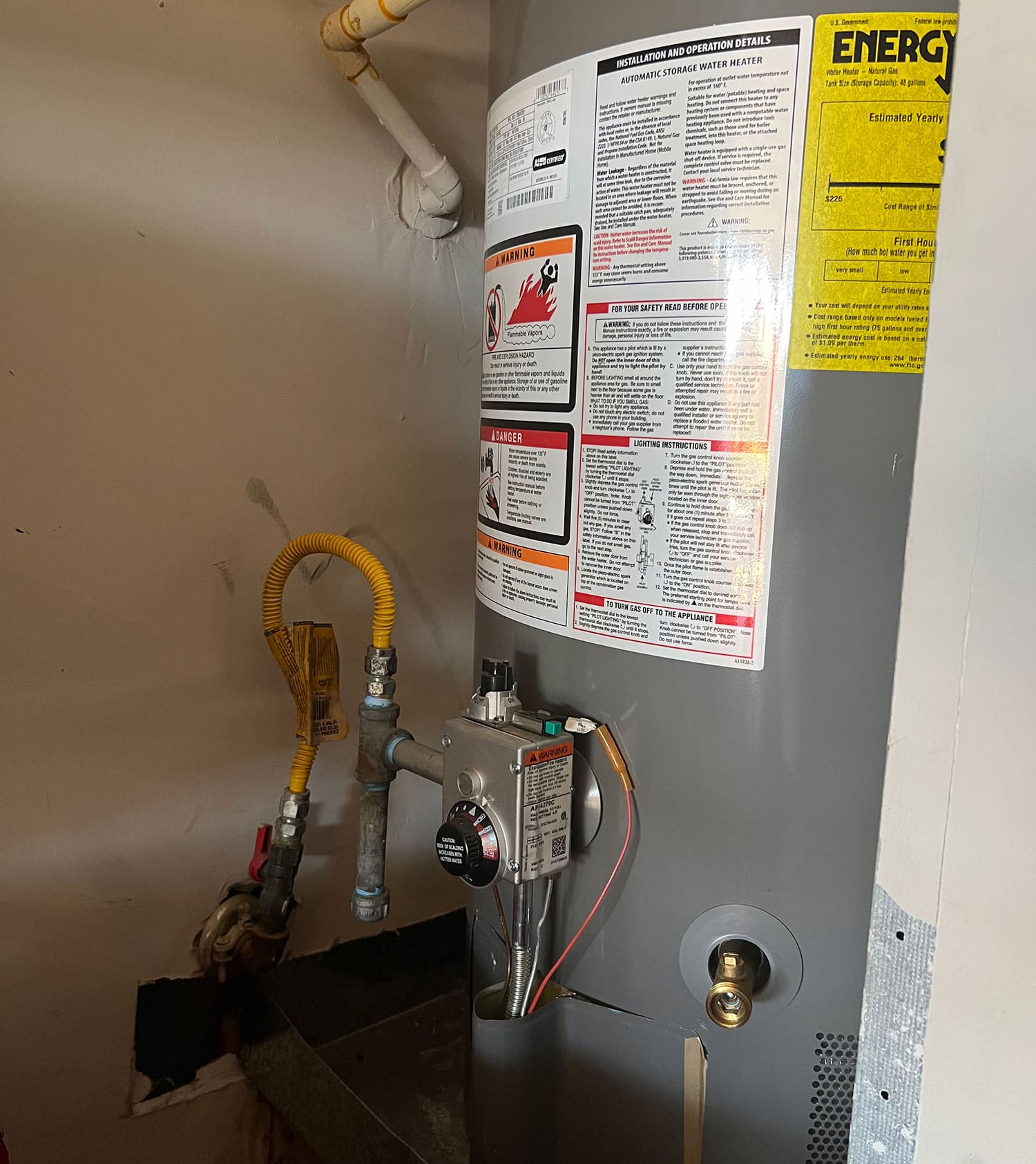Imagine this: you step into a luxurious shower, anticipating a hot gush, only to be greeted by a measly drizzle of lukewarm water. Cue frustration montage. Before you succumb to cold showers and questionable hygiene, let’s talk water heaters. Knowing when to repair or replace this trusty appliance can save you money, time, and (most importantly) sanity.
Listen to Your Water Heater Whisper:
Like any faithful companion, your water heater communicates its needs. Pay attention to these telltale signs:
- Age: 10-12 years is the average lifespan. If yours is nearing or exceeding this age, be extra vigilant.
- Fluctuations in water temperature: Lukewarm showers, inconsistent heating, or sudden bursts of scalding water are red flags.
- Leaky tank: Puddles near the base are a major red flag. Leaky tanks indicate internal damage and potential flooding risks.
- Rusty water: Discolored water, especially with a metallic taste, means rust is eating away at the tank, leading to contamination and eventual failure.
- Noisy operation: Excessive banging, popping, or rumbling noises signal trouble brewing inside the tank.
Repair or Replace? The Million-Dollar (or Cent) Question:
Now comes the critical decision: repair or replace? Here's your handy guide:
Water Heater Repair might be your hero if:
- The issue is minor: Faulty heating element, leaking valve, or malfunctioning thermostat? These can often be fixed relatively cheaply.
- Your water heater is young: If it’s under 5 years old, repairs might be a cost-effective solution.
- You’re on a tight budget: Replacing a water heater is a significant investment. If funds are limited, consider repairs as a temporary fix.
But here's when replacement becomes your knight in shining armor:
- Multiple major issues: If your water heater exhibits several problems simultaneously, repairs might end up costing more than a new unit in the long run.
- Extensive leaks: Large leaks pose a potential flood hazard and warrant immediate replacement.
- Frequent breakdowns: Constant repairs are a drain on your wallet and patience. Consider it an investment in peace of mind.
- Rusty tank: Replacing a rusty tank is crucial for safe, clean water.
- Energy efficiency upgrade: Newer models are significantly more energy-efficient, saving you money on utility bills in the long run.
Bonus Tip: Before making a decision, consult a licensed plumber. They can diagnose the problem and provide a cost-benefit analysis for repair versus replacement. Remember, professional advice can save you from costly mistakes down the line.
Don’t wait for a cold shower epiphany! By heeding the signs and understanding your options, you can make an informed decision that keeps your wallet and your hot water happy. After all, a comfortable shower is a basic human right (and a sanity saver)!


